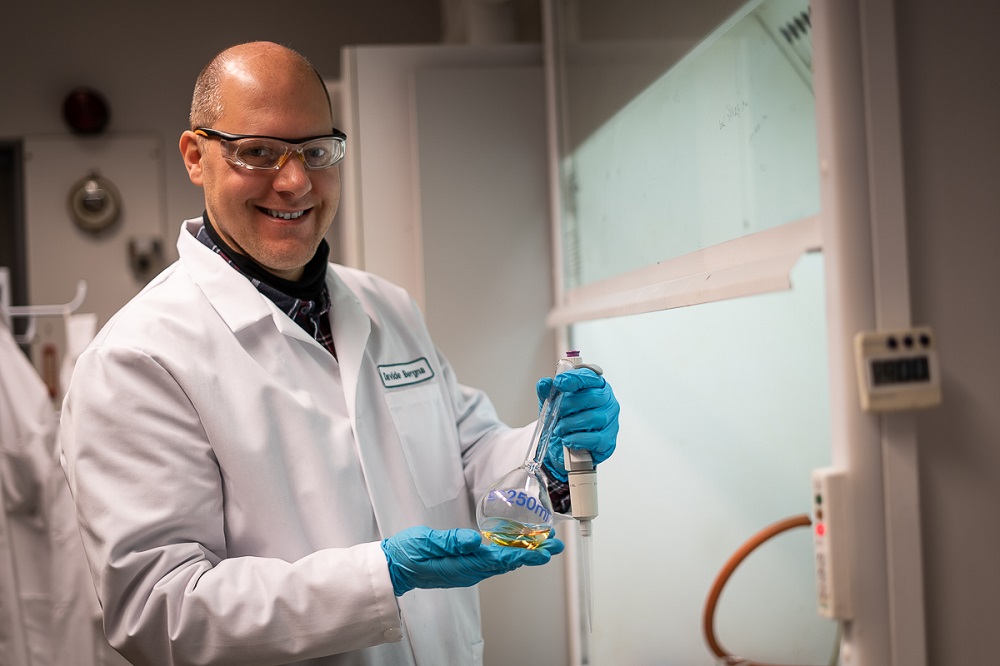Making battery chemistry a leading sector through city cooperation

Finland is striving for world-class recognition as a pioneer of battery chemistry. National and international competence and cooperation are needed in the implementation of carbon-neutral electricity production.
The electrification of traffic and societies is on a journey towards carbon neutrality. Battery technology and electricity production play a key role in the achievement of this goal. Battery chemistry innovations, in turn, are needed to improve battery life, ensure the availability of materials and develop the storage of electricity.
Kokkola battery chemistry hub the largest in Northern Europe
Kokkola has established itself as a leading hub for battery chemistry expertise, fostered by a supportive industrial environment. In addition to Northern Europe’s largest battery chemistry hub located in Kokkola, Keliber is currently building a new lithium mine in the neighbouring municipality of Kaustinen.
-All products with batteries contain materials that are produced here in Kokkola, says Jonne Sandberg, Development Director at the City of Kokkola.
Now the City of Kokkola is taking the lead in implementing InnoCities’ lead project to strengthen the value chain of battery chemistry. The lead project for battery chemistry is based on the National Battery Strategy 2025 and its national visions and goals within the battery chemistry value chain, particularly in the production of battery chemicals. Finland wants to be an internationally renowned expert in the value chains of battery chemistry.
The project concentrates on developing expertise in the early stages of the battery value chain. Cooperation is being promoted with Vaasa, Pori, Turku, Lappeenranta, Jyväskylä and Kuopio. In some cities, emphasis is given to battery chemistry recycling, while others focus more on the industrial area aspect or water treatment.
The goal is to avoid duplication of efforts and identify the specific expertise of each region. Through cooperation, these strengths can be leveraged extensively while seeking national and international recognition for the battery chemistry ecosystem. This will bring in more investments, increase businesses’ appeal and improve the availability of labour.
– Bringing together Finnish battery chemistry expertise increases opportunities for growth in Finland while opening doors to international cooperation, Jonne Sandberg says.
A strong and well-functioning network as a resource in international competition
The City of Kokkola is responsible for the implementation of the project, coordinating communication and sharing project updates and results. In addition, the City is in charge of one of the project’s action packages. The Industrial Service Concepts package seeks to identify the best practices in the value chain.
– We want to know what constitutes a perfect industrial area. We already have an excellent one here in Kokkola, says the City’s Strategy Manager Piia Isosaari.
One of the co-implementers of the lead project is the University of Oulu/Kokkola University Consortium Chydenius, which is responsible for an action package aimed at strengthening international top-level expertise in battery chemistry and increasing impact and visibility. The focus is on identifying common research challenges in the regions and promoting international research collaboration between universities.
– We are currently engaged in active collaborative research with the urban areas involved in the project, and several international research projects are under preparation,” says Professor Ulla Lassi from the University of Oulu.
Centria University of Applied Sciences and the Federation of Education in Central Ostrobothnia are the other co-implementers of the project and jointly responsible for the third action package. It focuses on strengthening and marketing national and regional expertise. Central to this is the establishment of a nationally and internationally significant network of universities of applied sciences and upper secondary-level educational institutions in the field of RDI, technology transfer and service activities related to the battery value chain.
– We want to maintain our leading position in the global battery chemistry landscape into the future. We recognise that the strengthening of network-like power is a megatrend with implications for both value and supply chains. It requires us to establish a shared overview and continuously and comprehensively improve our actions,” says Hannu-Pekka Pukema who took on the role of Project Manager in early September.
– Kokkola Material Week, which will take place during week 47, serves as an excellent platform to start strengthening cooperation and increasing dialogue among all members of the network. The event will feature the first round-table discussions with industry representatives to identify best practices,” says Pukema, extending a warm welcome to everyone to Kokkola and Kokkola Material Week.
Lead project for battery chemistry
• Duration: 1.8.2023-31.7.2025
• Total cost: 259 188 €
• Share of ERDF and government funding: 194 390 €
Contact information
Hannu-Pekka Pukema
Project Manager, City of Kokkola
Hannu-Pekka.Pukema@kokkola.fi
+358 40 806 5912
In 2022, InnoCities received EUR 2 million from the European Regional Development Fund for cross-regional lead themes. InnoCities carry out sustainable urban development in Finland in accordance with the EU’s policies.
Battery chemistry is one of the six lead themes of InnoCities. Thematic cooperation brings together the resources of cities and promotes the sharing of good practices and international cooperation as well as investments. InnoCities support innovation and engage in the practical application of research and pilots. InnoCities exist in order to enable people, businesses and other organisations to develop, come together and brainstorm.
